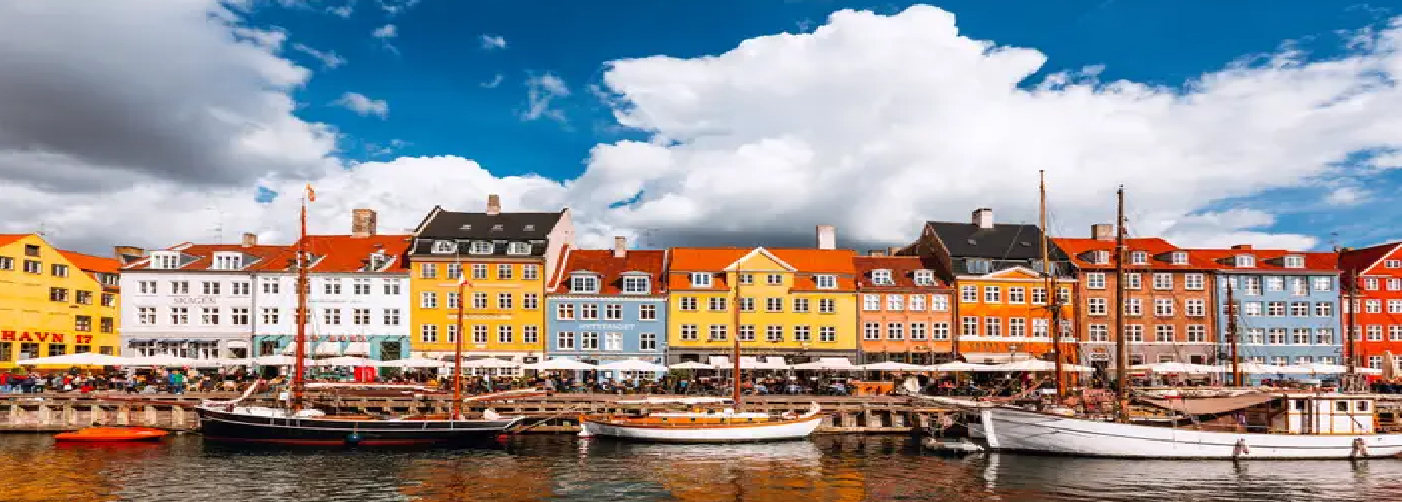- Top-Ranked Universities – Home to some of the best universities in Europe.
- English-Taught Programs – Over 600+ programs available in English.
- Innovative & Practical Learning – Focus on research-based education and real-world applications.
- Post-Study Work Opportunities – Work in Denmark after graduation.
- Safe & High Quality of Life – Ranked as one of the happiest countries in the world.
- Pathway to PR & Citizenship – Students can apply for permanent residency (PR) after graduation.
Undergraduate (Bachelor’s Degree)
- High School Diploma (Equivalent to Danish Standards)
- English Proficiency (for English programs):
- IELTS 6.5+ or TOEFL 90+
- Some universities accept Cambridge English tests.
- Mathematics & Science Requirements (for STEM courses).
Graduate (Master’s & Ph.D.)
- Recognized Bachelor’s Degree
- English Proficiency: IELTS 6.5 – 7.0 or TOEFL 90+
- Statement of Purpose (SOP)
- Letters of Recommendation
- Research Proposal (for Ph.D. applicants)
| Scholarships for International Students |
- Danish Government Scholarships – Covers tuition and living expenses.
- Erasmus+ Scholarships – For EU/EEA students.
- University-Specific Scholarships – Available at KU, DTU, CBS, AU, and SDU.
- Nordic Scholarships – For students from Nordic and Baltic countries.
- Talent-Based Scholarships – For high-achieving international students.
| Work Opportunities for International Students |
- EU/EEA Students: No work restrictions.
- Non-EU Students:
- Allowed to work 20 hours per week (full-time in summer).
- Minimum wage: €13 – €16 per hour.
- Part-time jobs available in IT, hospitality, research, and administration.
- Post-Study Work Visa: Graduates can stay in Denmark for up to 3 years to find a job.
|
- Business & Management
- Engineering & Technology
- Computer Science & IT
- Environmental Science & Sustainability
- Life Sciences & Medicine
- Social Sciences & Humanities
- Architecture & Design
| Cost of Studying in Denmark |
Tuition Fees (per year)
- EU/EEA Students: FREE tuition at public universities.
- Non-EU/EEA Students:
- Bachelor’s: €6,000 – €16,000
- Master’s: €8,000 – €18,000
- MBA & Specialized Courses: €15,000 – €35,000
Living Expenses (per month)
- Accommodation: €400 – €800
- Food & Transport: €300 – €500
- Total Monthly Cost: €800 – €1,500
Health Insurance
- Free for EU/EEA students.
- Non-EU students must buy health insurance (€300 – €500 per year).
| Student Visa (Residence Permit for Study) Application |
- Receive an Offer Letter from a Danish university.
- Apply for a Danish Study Visa (Residence Permit).
- Submit the required documents:
- Valid passport
- Admission letter from a university
- Proof of financial means (€1,000 per month for living expenses)
- Health insurance certificate
- Proof of accommodation
- Biometric data submission
- Visa Processing Time: 2 – 3 months.
| Pathway to Permanent Residency |
- Temporary Residency: After 2 years of studying in Denmark.
- Work & Stay: Graduates can apply for a 3-year post-study work visa.
- Permanent Residency (PR): After 8 years of legal residence (can be reduced to 4 years for highly skilled workers).
- Danish Citizenship: After 9 years of continuous residence..
|








